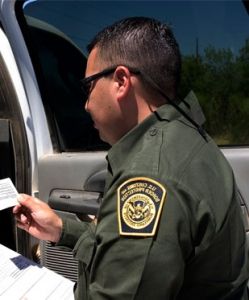Will I Be Denied Entry to USA if I Admit Drug Use?
Should I Admit Drug Use?
Admit Drug Use – Permanent Ban
If you admit to drug use at a USA port of entry, you may be denied entry. Why? The United States Customs and Border Patrol (CBP) treat the admission of drug use the same as a conviction. Drug convictions over the age of 18 and indictable drug convictions between the age of 16 and 18 render you inadmissible to the United States on a permanent basis. ***There are exceptions, see below. ***
You can overcome your inadmissibility by applying for a Waiver of Inadmissibility. However, waivers are only valid for a period of 6 months to 5 years. This means you will have to keep renewing your waiver if you want to continue to visit the United States regularly.
To answer the question “Should I admit drug use to a USA CBP officer?” or “should I lie about my past drug use?”, you should never lie or misrepresent yourself to a USA CBP officer. Be truthful. We will never counsel misrepresentation. I always tell people there are 3 things that the USA absolutely hates the most. They are drug trafficking, sex offences and lying to a CBP officer! Some proponents argue that you should never admit to drug use.
Refuse to Admit Drug Use – Temporary Ban
The better question is: “Do I have to answer their question about drug use?” No, you don’t. You can refuse to answer the question. Ordinarily, it would result in a one-time ban and possible problems on re-entry in the future.
I believe being denied entry for failure to answer a question is preferable to a possible lifetime ban. However, it is only speculation as to which situation will result in a better outcome for your specific case.
Airport vs Land Port of Entry
It is better to be denied in Canada at an International airport—it is more difficult for a CBP officer to detain or arrest you. But, you are on USA soil once you reach a CBP officer at a land border. At a land border, a CBP officer is more likely to detain you longer, deny you washroom privileges and tear your car apart (for you to put back together). Therefore, refusal to answer questions may aggravate the situation.
You need to think about the long-term impact of your answer. I’m a Waiver Specialist. I’ve helped process over 2,000 applications. As I’ve said, I can’t tell you what to say–meaning I can’t counsel misrepresentation. I can only tell you what you are expected to say. But, I imagine a lawyer would tell you “don’t admit to anything” and “don’t sign anything”. The choice is yours.
Exceptions to Bans
If you have a prescription for marijuana use for medical purposes (or other banned substance), you may not be denied entry for admitting to drug us or being in possession of marijuana (or other banned substance) for personal use while in possession of a medical prescription. HOWEVER, you run the risk of becoming medically inadmissible if the medical issue for which you are taking marijuana (or other banned substance) is of concern to the United States. That means, they could deny you for medical reasons if they think that your medical condition could cause you to be a burden on the USA health care system. In a case like this, it is helpful to carry medical insurance to ensure that you are adequately covered—but it is no gaurantee that you will be permitted entry.
Trigger
Once the border guard goes down any particular path that could lead to your refusal, they often will check other things that may lead to refusal including (a) do you have a return ticket (meaning is your stay in the USA really only temporary; (b) do you have the means to support yourself while visiting the United States; (c) do you have a job to return to or other ties to Canada. Basically, once border guards become concerned for any particular reason, they often go through many more checks than they would otherwise. For example, I once had a client who proved she was not inadmissible for drug use because she had a medical prescription, but they determined she had a one-way ticket, was going to the USA for the winter to enjoy the hot sunshine because the hot weather was less aggravating for her medical condition and she was being supported by her parents. They felt she could become a financial burden in the United States as there was no way to gaurantee her parents would continue to support her or that all of her medical expenses would be covered. So, they denied her and deemed her medically inadmissible. Once inadmissible, she has to correct the situation that made her inadmissible, show that an error was made when denying her, or apply for and receive a U.S. Waiver due to medical inadmissiibility.
What Can I Do If I am Denied Entry?
To summarize, if you admit drug use or you refuse to answer their question, the outcome will be unfavorable. You may be denied entry one-time only or you may be banned permanently. Depending on your situation, there are four possible remedies:
- Make a redress complaint;
- Apply for a Waiver of Inadmissibility;
- Request a Non-inadmissibility letter (a ruling that the incident does not make you inadmissible); or
- spend your travel dollars somewhere else!
We strongly recommend that you be polite and respectful in all cases. If you have cross-border issues, please call. We can help. Contact us, if you need our assistance on this or a related matter.
Am I banned permanently?
In a 1957 court case (Matter of K-), the Board of Immigration Appeals stated that the following steps must be followed before an individual can be found inadmissible:
- the individual must be given a definition of the offense with all essential elements; and
- the individual must be given an explanation of the offense in layperson’s terms.
The statute does not make someone inadmissible if they admit drug use. Rather, a person becomes inadmissible for admitting to breaking a statute related to a controlled substance. However, a person can only be found to be inadmissible if these requirements are satisfied:
- DHS identify the laws violated;
- the person was given an explanation of the elements of the crime; and
- the person admitted to all these elements in Affidavit form, signed under oath in the presence of a Customs and Border Protection (CBP) officer.
That means if the elements do not all occur on your refusal or you refuse to sign the Affidavit, your refusal may be one-time only. Rather than sign the Affidavit, you may instead request to withdraw your application for admission.
Legalization of Marijuana
It will be interesting to see what happens when marijuana use becomes legal in Canada. Currently, marijuana use is legal in some US States, but is not legal on a Federal level. The admission of visitors to the USA is controlled on a Federal level and it is Federal laws which make drug violations excludable offences. This is why you are inadmissible to the USA if you admit to marijuana use even if marijuana use is legal in the State you are visiting.
What do others have to say on the matter?
It has been argued that the new policy from DHS does not satisfy “corpus delicti” (a crime must be proved to have occurred before a person can be convicted of committing that crime). I guess the question remains, is a confession but not a conviction sufficient to exclude a person? It seems DHS is taking that view.
As well, the statute of limitations may apply. For example, in Canada a person can’t be charged more than six months after the commission of the summary offence in question (pursuant to Section 786(2) of the Criminal Code of Canada) whereas there are no limitations for indictable offences.
The Canadian Government has expressed strong objections to this latest DHS policy. Public Safety Minister Ralph Goodale said in an interview with the CBC, “We obviously need to intensify our discussions with our border authorities in the United States, including the Department of Homeland Security” and “This does seem to be a ludicrous situation”.
Tell Us Your Stories
Feel free to share your experience below.


